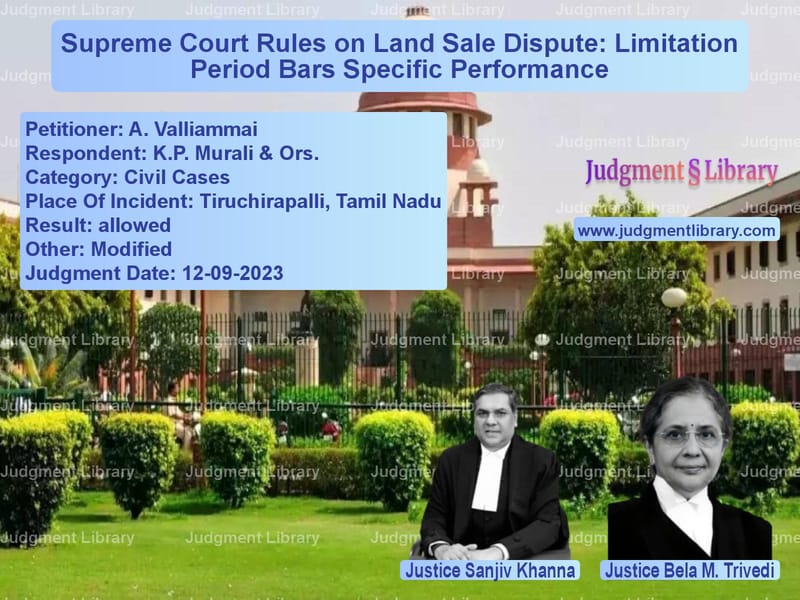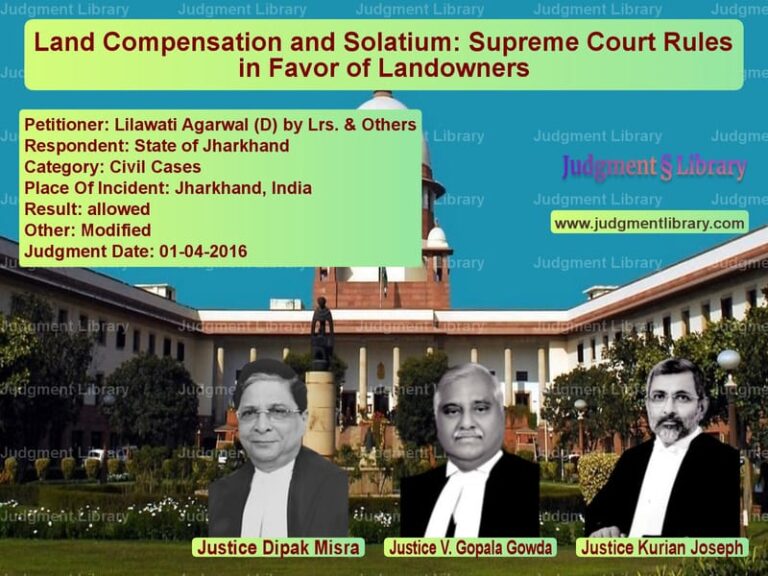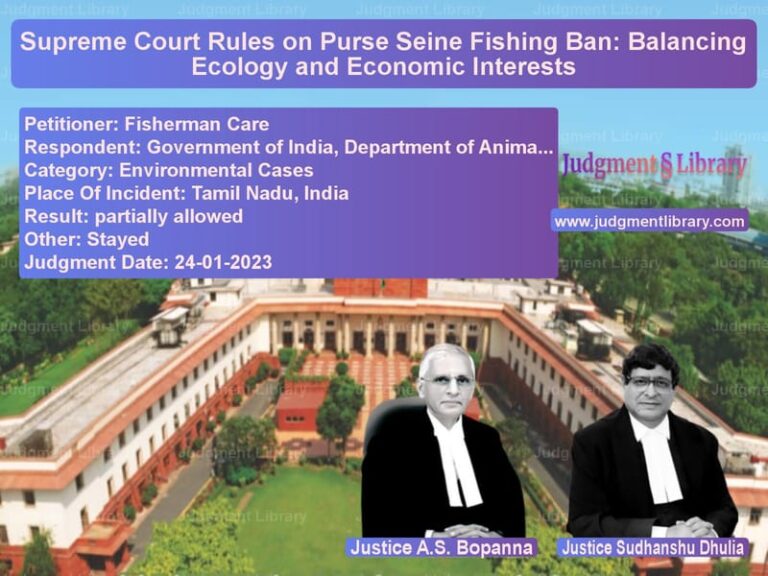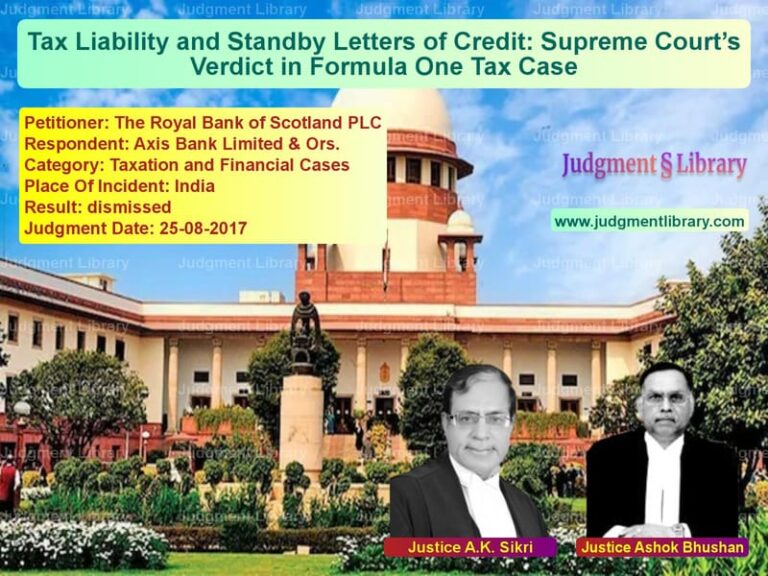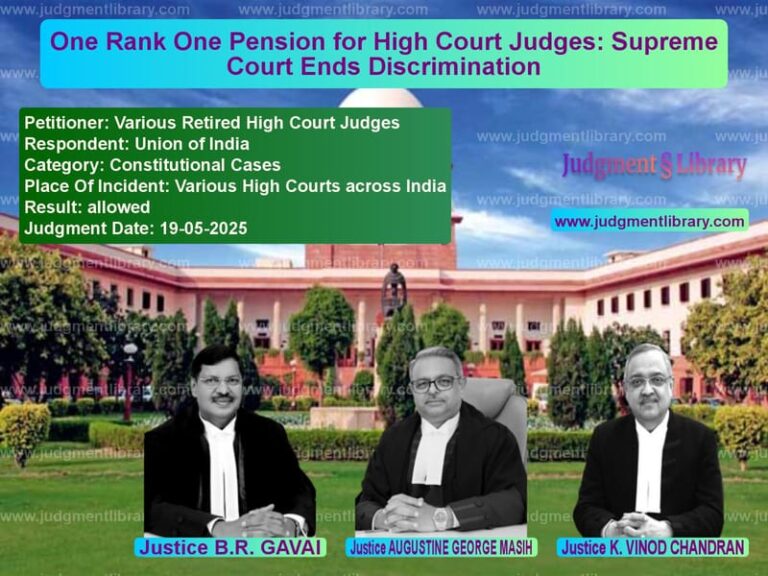Supreme Court Rules on Land Sale Dispute: Limitation Period Bars Specific Performance
The Supreme Court, in A. Valliammai vs. K.P. Murali & Ors., ruled on a land sale dispute, emphasizing the importance of adhering to the limitation period under Article 54 of the Limitation Act, 1963. The judgment addressed whether a suit for specific performance, filed six years after the seller refused to execute the sale deed, was maintainable.
Background of the Case
The case involved 11 acres of land in Agaram village, Tiruchirapalli, Tamil Nadu. The appellant, A. Valliammai, inherited the land as the second wife of late Ayyamperumal. On May 26, 1988, she entered into an agreement to sell the land to respondent K. Sriram for ₹2,95,000 per acre, receiving ₹1,00,000 as an advance. The balance of ₹31,45,000 was to be paid within a year.
On May 26, 1989, both parties extended the deadline by six months, but the sale was not completed. In 1991, K. Sriram issued a legal notice demanding execution of the sale deed, but Valliammai refused, leading to the filing of multiple suits over the years.
Read also: https://judgmentlibrary.com/west-bengal-mining-lease-dispute-supreme-court-partially-allows-appeal/
Legal Issues Raised
The Supreme Court had to determine:
- Whether the suit for specific performance was barred by limitation.
- Whether K. Sriram’s assignment of rights to K.P. Murali and S.P. Duraisamy in 1992 was valid.
- Whether the pendency of a partition suit in a related matter affected the limitation period.
Petitioner’s Arguments (A. Valliammai)
The petitioner argued:
- The suit for specific performance was barred by limitation as the refusal to execute the sale deed was communicated in 1991.
- The contract had lapsed when the extended deadline expired on November 26, 1989.
- The assignment of rights by K. Sriram to K.P. Murali and S.P. Duraisamy in 1992 did not create a new cause of action.
- The partition suit did not delay the limitation period, as the agreement did not make its disposal a condition for execution of the sale deed.
Respondent’s Arguments (K.P. Murali & S.P. Duraisamy)
The respondents contended:
- The three-year limitation period should be calculated from the date when Valliammai explicitly refused to perform the contract.
- The agreement’s execution was dependent on the disposal of the partition suit.
- K. Sriram had taken substantial steps, including approval of layout plans, showing continued interest in enforcing the contract.
Supreme Court’s Ruling
The Supreme Court ruled in favor of A. Valliammai, holding that the suit for specific performance was barred by limitation.
1. Limitation Period Expired in 1994
- Under Article 54 of the Limitation Act, 1963, the limitation period for specific performance is three years from the date fixed for performance.
- The last agreed deadline was November 26, 1989. The limitation period expired on November 26, 1992.
- K. Sriram filed for an injunction in 1991 and acknowledged Valliammai’s refusal, confirming that the limitation period had started.
2. Assignment of Rights Did Not Extend Limitation
- The Court ruled that K. Sriram’s transfer of rights to K.P. Murali and S.P. Duraisamy in 1992 did not create a new limitation period.
- The suit for specific performance filed in 1995 was already beyond the limitation period.
3. Partition Suit Had No Bearing on Performance
- The agreement to sell did not state that execution depended on the disposal of the partition suit.
- Valliammai’s refusal in 1991 constituted a clear rejection, making the partition suit irrelevant to the limitation period.
4. Compensation Ordered Instead of Sale
- The Court acknowledged that K. Sriram had incurred expenses, including layout approvals.
- Using its powers under Article 142 of the Constitution, the Court directed Valliammai to pay ₹50,00,000 to the respondents.
- If payment was not made within six months, interest at 8% per annum would apply.
Final Judgment
The Supreme Court:
- Allowed the appeal and set aside the decree for specific performance.
- Directed Valliammai to pay ₹50,00,000 to the respondents.
- Ordered interest at 8% per annum if payment was not made within six months.
Impact of the Judgment
This ruling reinforces several legal principles:
- Strict adherence to limitation periods: Specific performance suits must be filed within three years.
- Transfers do not reset limitation: Assigning contractual rights does not extend the filing period.
- Contract terms govern obligations: External factors like partition suits do not delay performance unless explicitly stated.
- Article 142 powers ensure equity: The Court balanced legal principles with fairness by granting compensation.
Conclusion
The Supreme Court’s decision in A. Valliammai vs. K.P. Murali & Ors. underscores the importance of filing suits within the statutory limitation period. The judgment clarifies that once a party refuses to perform, the clock for specific performance starts ticking. While enforcing the limitation law strictly, the Court also ensured fairness by awarding compensation for incurred expenses. The ruling serves as a vital precedent for property and contract disputes in India.
Petitioner Name: A. Valliammai.Respondent Name: K.P. Murali & Ors..Judgment By: Justice Sanjiv Khanna, Justice Bela M. Trivedi.Place Of Incident: Tiruchirapalli, Tamil Nadu.Judgment Date: 12-09-2023.
Don’t miss out on the full details! Download the complete judgment in PDF format below and gain valuable insights instantly!
Download Judgment: a.-valliammai-vs-k.p.-murali-&-ors.-supreme-court-of-india-judgment-dated-12-09-2023.pdf
Directly Download Judgment: Directly download this Judgment
See all petitions in Property Disputes
See all petitions in Contract Disputes
See all petitions in Damages and Compensation
See all petitions in Succession and Wills
See all petitions in Judgment by Sanjiv Khanna
See all petitions in Judgment by Bela M. Trivedi
See all petitions in allowed
See all petitions in Modified
See all petitions in supreme court of India judgments September 2023
See all petitions in 2023 judgments
See all posts in Civil Cases Category
See all allowed petitions in Civil Cases Category
See all Dismissed petitions in Civil Cases Category
See all partially allowed petitions in Civil Cases Category

